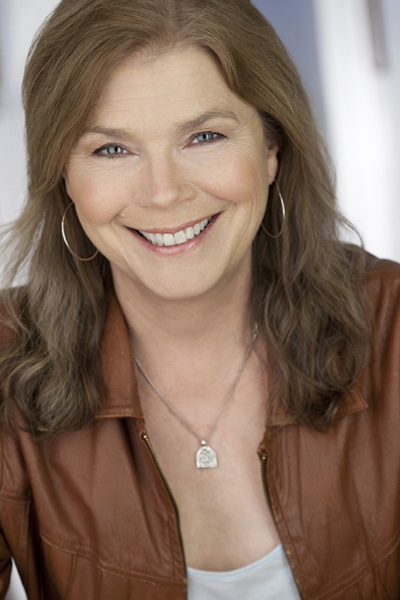
Caris Corfman once had the theatrical world by the tail—she was a standout student at the Yale School of Drama, acted on the Broadway stage and earned a handful of leading roles in films. But then tragedy struck, and she was diagnosed with a brain tumor in 1993.
Her story, “Caris’ Peace,” a feature-length documentary directed by Gaylen Ross, will be told during the Hamptons International Film Festival during its world premiere. Many famous faces, mostly friends from her days at Yale, appear in the documentary, including Kate Burton, Lewis Black and Rebecca Nelson.
“Caris was just the most original, interesting young actress. She was like a young Judi Dench. And she was beautiful, by the way, a real stunner,” Ms. Burton said during a telephone interview last week from Los Angeles. “She had so much vibrance and talent. She accomplished a lot of things, even when things started to go awry.”
Ms. Corfman’s short-term memory, key for an actress whose livelihood depended on memorizing dialog, was lost. Her once head-turning beauty was ravaged by the effects of the benign pituitary tumor, which stimulated an uncontrollable appetite particularly damaging as she was diabetic. And she suffered from excruciating, debilitating headaches.
Prior to the diagnosis, her friends noticed the dramatic changes in her appearance and her personality but they mostly chalked it up to either “actor blues” or perhaps mid-life health issues. Nobody, least of all Ms. Corfman, suspected a tumor.
“Before we knew what was going on, nobody could figure out why she was all of a sudden so angry at things,” Ms. Nelson, her good friend and “Caris’ Peace” documentary collaborator said during a phone interview at her home last week. “She was getting really bad headaches and it was difficult for her to deal with.”
In spite of it all, Ms. Nelson said that her friend was an exceptional person and a highly talented actress.
“She was brave, funny, spontaneous. She was willing to take risks and do things that were outrageous and spur-of-the-moment,” Ms. Nelson said. “She was a doer.”
In the film, Mr. Black said that his friend was like “champagne.”
Last week, while touring in Illinois, the comedian and Yale School of Drama graduate explained what he meant during a telephone interview.
“You open a bottle of champagne to celebrate something,” he said. “She always had that sense of celebrating life. There was this life force that went through her. It sounds trite but she was bubbly.”
In hindsight, the clues added up, Ms. Burton said.
“She said, ‘I’m having trouble memorizing things,’ that was the beginning. She was 37.”
Mr. Black recalled the moment when he noticed that something wasn’t right with his friend.
“I was walking down the street, literally around Times Square, and I turned around and saw her. She already did not look good. I knew something was up,” he said. “In retrospect, things she had been doing [meaning her personality and physical changes] started to become clear.”
Though in dire health for years, Ms. Corfman gradually improved. And could not be kept from her passion, according to Ms. Ross.
“She wanted to be back on the stage, she wanted to work again,” Ms. Ross said. “She volunteered. She licked envelopes for fundraising just to be near the theater.”
The tumor and four subsequent operations could not keep Ms. Corfman down. After a decade-long hiatus from the stage, she returned in 2005 with her one-woman show, “Caris’ Peace,” at the Flea Theater in Manhattan. She used note cards to aid her with her lines. The talented actress commanded the stage and gave, according to those who attended, a beautiful and moving performance.
“It was just phenomenal. She was like a racehorse that gets back on the track,” Ms. Ross remembered. “It was stunning, it looked like she had never left.”
Ms. Nelson said that before the performance, she was afraid for her friend.
“I wasn’t sure what was going to happen once she got on the stage, but once she got there, my fear went away. She was in control and it was like magic,” she said.
Ms. Corfman’s joie de vivre shined through in her performance, as well as in the film about her, Mr. Black said.
“You don’t meet a lot of unique people in your life,” he said. “Somebody like her comes along and you want to be like ‘Why are you so f-----g happy?’ But that was her and it was all right.”
Ms. Nelson and Ms. Ross said that the overall takeaway from their friend’s story is about overcoming obstacles.
“The idea of being able to inspire people was always in the back of my mind,” Ms. Ross said. “I hope this film does that.
“Caris’ Peace will screen on Friday, October 14, at 11:30 a.m. and Monday, October 17, at 3 p.m. at UA East Hampton.